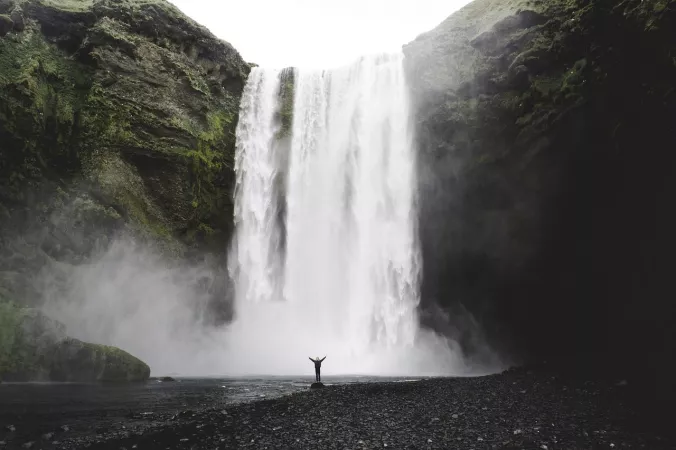
Bap Teng Kang
Duration
1 to 2 Days
1 to 2 Days
Best time to visit
Oct-Jan
Oct-Jan
Theme
Hill Station
Hill Station
Bap Teng Kang Travel Guide
Bap Teng Kang is a hidden gem in Southeast Asia, known for its rich history, stunning geography, and vibrant culture. This off-the-beaten-path destination offers travelers a unique experience with its ancient temples, lush landscapes, and warm hospitality. The country is famous for its untouched natural beauty and spiritual sites, making it a must-visit for those seeking a peaceful and authentic travel experience.Top Attractions in Bap Teng Kang
- 1. Sacred Temple of Tranquility
- 2. Emerald Waterfalls
- 3. Enchanting Bamboo Forest
- 4. Serene Lakeside Retreat
- 5. Local Markets and Cultural Festivals
Bap Teng Kang is Famous for
Its serene landscapes and spiritual sites.Top Attractions in Bap Teng Kang
- Sacred Temple of Tranquility
- Emerald Waterfalls
- Enchanting Bamboo Forest
- Serene Lakeside Retreat
- Local Markets and Cultural Festivals
What's Great about Travelling to Bap Teng Kang?
- Experience authentic local culture
- Explore untouched natural beauty
- Peaceful and serene environment
What's Not So Great about Travelling to Bap Teng Kang?
- Limited tourist infrastructure
- Language barrier in remote areas
- Challenging transportation options
Travel Tips for Bap Teng Kang
- Research local customs and traditions
- Respect religious sites and practices
- Carry cash as credit cards may not be widely accepted
Important Bap Teng Kang trip information
- Ideal Duration: A week to fully explore the destination
- Best Time to Visit: The dry season from November to March
- Nearby Airports and Railway Stations: Bap Teng Kang International Airport and Bap Teng Kang Railway Station
FAQ's on Bap Teng Kang
Q1: What is the best time to visit Bap Teng Kang?
The best time to visit Bap Teng Kang is during the dry season from November to February when the weather is cooler and ideal for exploring outdoor attractions. This period also coincides with festivals and cultural events. However, if you prefer lush green landscapes, the rainy season from June to September offers a different charm but be prepared for occasional showers.
Q2: Do I need a visa to travel to Bap Teng Kang?
Most visitors to Bap Teng Kang require a visa. However, certain nationalities may be eligible for visa exemptions or visa-on-arrival. It is advisable to check with the nearest consulate or embassy for specific requirements before your trip.
Q3: What are the must-visit attractions in Bap Teng Kang?
Bap Teng Kang boasts stunning natural beauty, with must-visit attractions including the majestic Mountain Peak, serene River Valley, and historic Temple Ruins. Don't miss exploring the bustling Night Market for local crafts and cuisine, and immerse yourself in the vibrant culture at the Traditional Village.
Q4: Is Bap Teng Kang a safe place to travel?
Bap Teng Kang is generally safe for tourists. However, like any destination, it is recommended to stay vigilant, especially in crowded areas and to secure your belongings. Avoid isolated areas at night and follow local advice for a trouble-free visit.
Q5: What is the local currency in Bap Teng Kang and can I use credit cards?
The local currency in Bap Teng Kang is the Teng, and ATMs are readily available in urban areas. Major credit cards are accepted in hotels, upscale restaurants, and larger stores. However, it is advisable to carry cash for smaller purchases and in more remote areas.
Q6: What is the local cuisine like in Bap Teng Kang?
Bap Teng Kang offers a diverse culinary experience with flavorful dishes such as Spicy Noodle Soup, Fresh Seafood Platters, and Sticky Rice Desserts. Vegetarian options are also available, and it's worth trying the aromatic local spices and herbs that give the cuisine its unique taste.
Q7: What transportation options are available in Bap Teng Kang?
Transportation options in Bap Teng Kang include public buses, taxis, and motorbike rentals for convenient travel within the country. Trains are also available for longer journeys between major cities, offering scenic views along the way.
Q8: Are there any cultural norms or etiquette I should be aware of when visiting Bap Teng Kang?
When visiting Bap Teng Kang, it is important to respect local customs such as removing shoes before entering homes or temples, dressing modestly, and greeting elders with a slight bow. It is customary to try local dishes with appreciation and to not waste food as a sign of respect.
Q9: I am a travel agent. How can I buy travel leads of Bap Teng Kang?
Register yourself as a travel agent at agents.tripclap.com and then you can buy travel leads to Bap Teng Kang once your account is approved. For more details contact our support team at +91-8069186564 or support@tripclap.com
